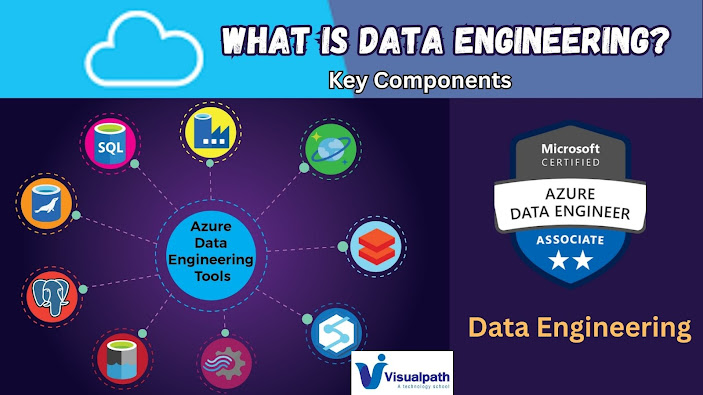What Is Data Engineering? & Key Components and Tools

What IsData Engineering? Data engineering is a field within data science and technology that focuses on designing, developing, and managing the architecture, tools, and infrastructure for collecting, storing, processing, and analyzing large volumes of data. It plays a crucial role in building the foundation for effective data analytics, machine learning, and other data-driven applications. - AzureData Engineer Course Key Components of Data Engineering: 1. Data Collection: · Data engineers are responsible for designing systems to collect data from various sources, such as databases, applications, sensors, logs, and external APIs. They ensure that data is ingested in a timely and efficient manner. 2. Data Storage: · Selecting appropriate storage solutions for different types of data is a vital aspect of data engineering. This involves choosing databases, data warehouses, data lakes, or a combination thereof based on the specific requirements of the organizatio
.jpg)


